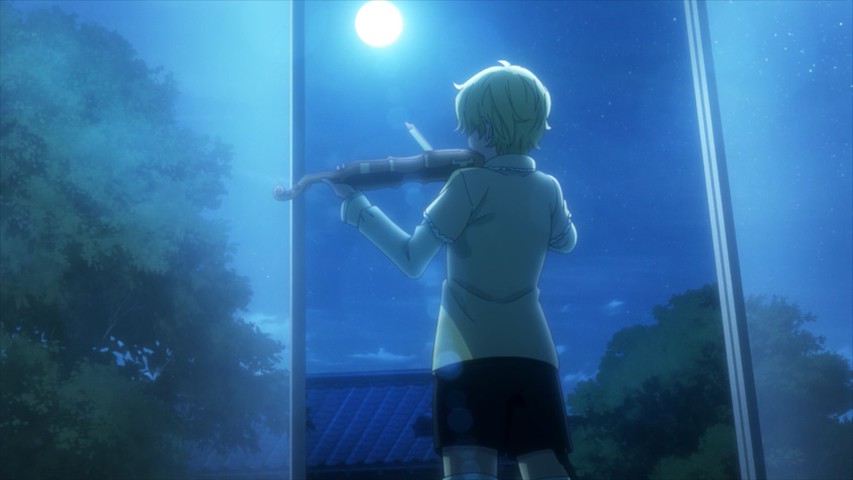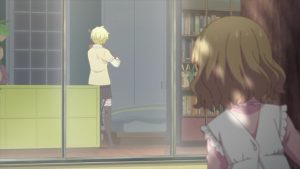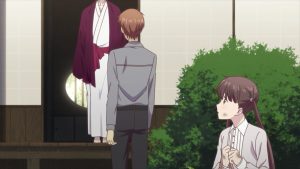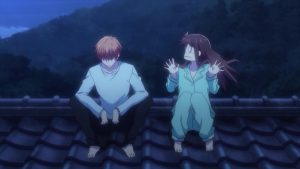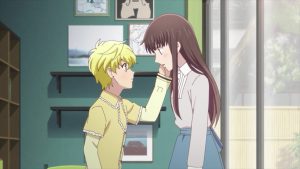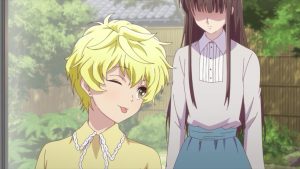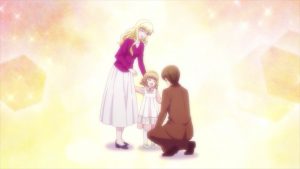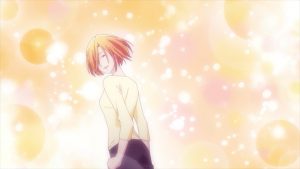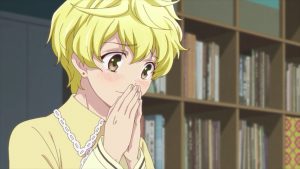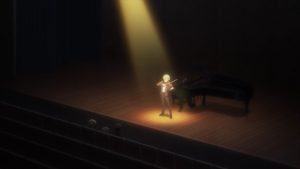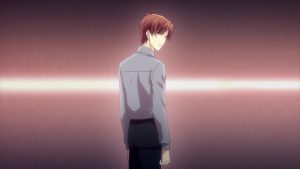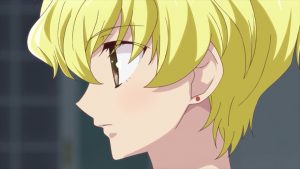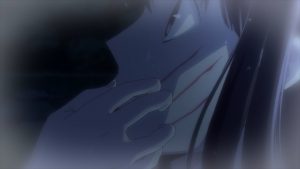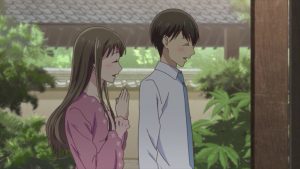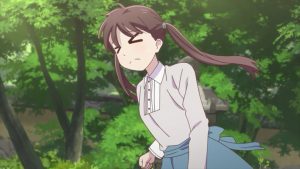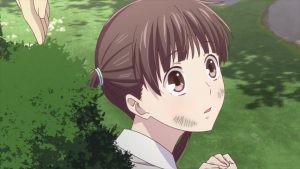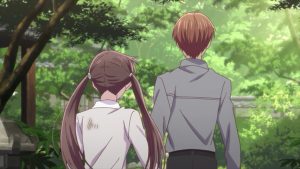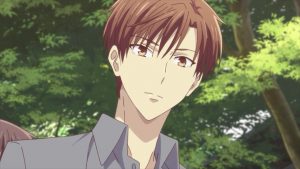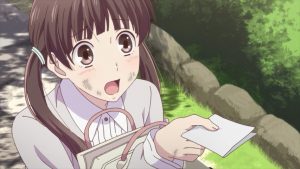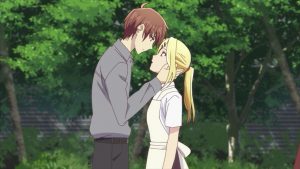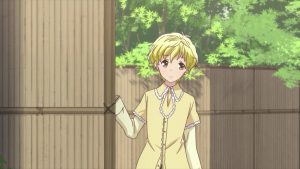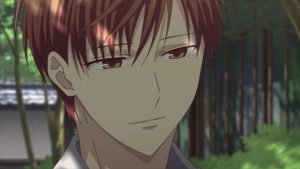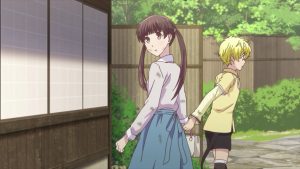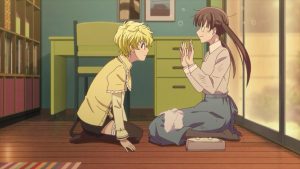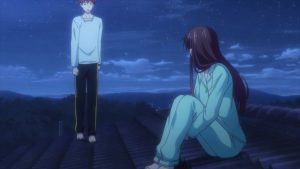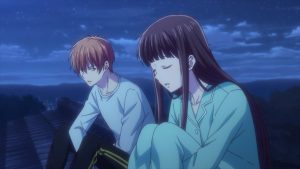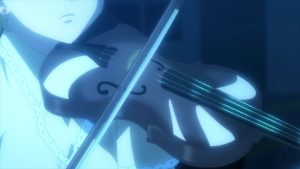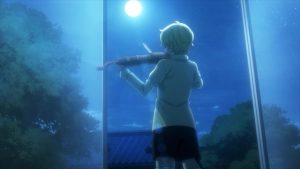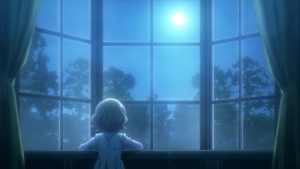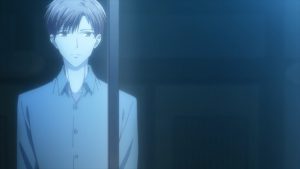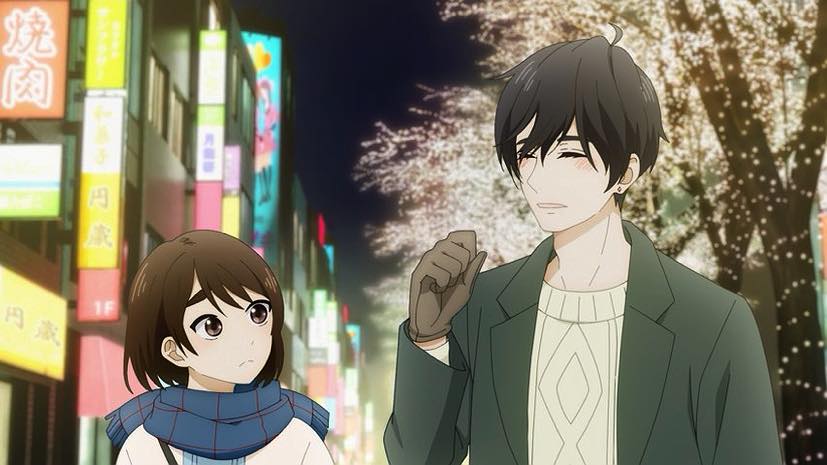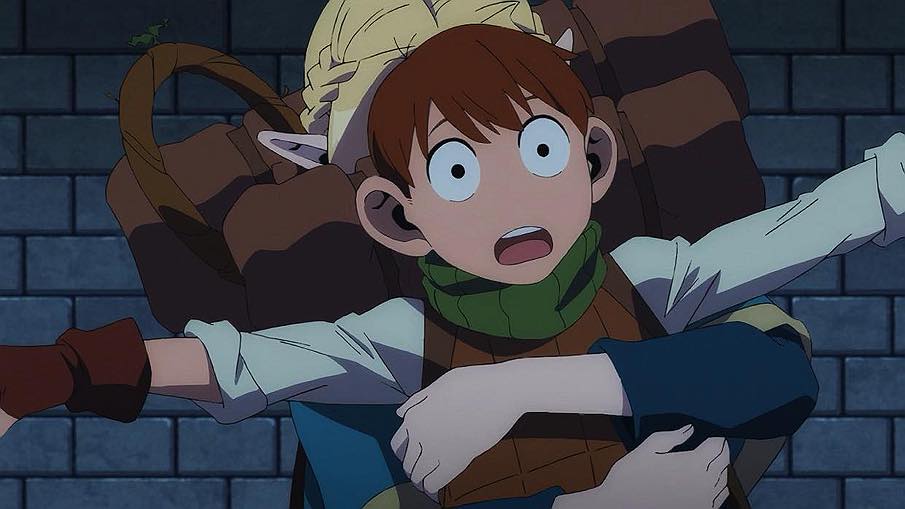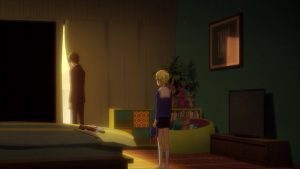 If only life were as predictable as Fruits Basket – things would be a lot simpler. Never has an anime been more explicitly the sum of its parts. Every episode of Furuba is as good as the characters it focuses on, almost without exception. That there are too many characters getting too much focus is the toll to be paid for following this series, manga or anime, but somehow when you get to the really good bits it does tend to feel like it was all worth it.
If only life were as predictable as Fruits Basket – things would be a lot simpler. Never has an anime been more explicitly the sum of its parts. Every episode of Furuba is as good as the characters it focuses on, almost without exception. That there are too many characters getting too much focus is the toll to be paid for following this series, manga or anime, but somehow when you get to the really good bits it does tend to feel like it was all worth it.
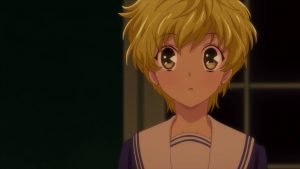 That’s why when an episode is Momiji-centric, you can pretty much bank it as one of the show’s top tier. Kyou has a very powerful story and he can more properly be said to be the central figure in the plot, but Takaya’s greatest creation is Momiji – because he captures the elusive quality of being simple and profound simultaneously. His arc is elegant and rings as sharply as a crystal goblet. Yet as straightforward as Momiji’s pain is, the way he lives his life is fascinatingly complicated.
That’s why when an episode is Momiji-centric, you can pretty much bank it as one of the show’s top tier. Kyou has a very powerful story and he can more properly be said to be the central figure in the plot, but Takaya’s greatest creation is Momiji – because he captures the elusive quality of being simple and profound simultaneously. His arc is elegant and rings as sharply as a crystal goblet. Yet as straightforward as Momiji’s pain is, the way he lives his life is fascinatingly complicated.
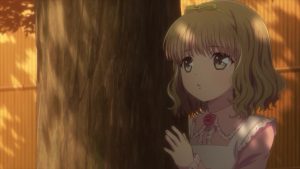 I would give the re-casting of Furuba an overall grade of “pretty good” – more hits than misses but not many real standouts (and I’m not that nuts for Iwami Manaka’s performance if I’m honest). It did nail one of the choices it absolutely had to, though, in casting Han Megumi (Iwami’s Gamers co-star) as Momiji. I actually think she’s gone a bit too squeaky-voiced and genki at times, but she has the chops to deliver the goods in the show’s most emotional passages. And Momiji’s emotional moments, rare as they are (all the more so for that, in fact) really have to sing for Fruits Basket to work.
I would give the re-casting of Furuba an overall grade of “pretty good” – more hits than misses but not many real standouts (and I’m not that nuts for Iwami Manaka’s performance if I’m honest). It did nail one of the choices it absolutely had to, though, in casting Han Megumi (Iwami’s Gamers co-star) as Momiji. I actually think she’s gone a bit too squeaky-voiced and genki at times, but she has the chops to deliver the goods in the show’s most emotional passages. And Momiji’s emotional moments, rare as they are (all the more so for that, in fact) really have to sing for Fruits Basket to work.
 There are actually two plots intertwining in this episode. Tohru goes to the mansion to try and find Kureno, who she believes may be Uo’s mysterious obsession. Kureno has a pretty sad story of his own, but that really becomes the B-plot once Tohru winds up at Momiji’s residence. She does that because his little sister Momo sneaks her into the estate, something she’s been doing herself for quite some time. Momo seems to have put two and two together and figured out who Momiji really is, though she may not be consciously aware of that (or is perhaps simply too young to grasp how such a thing could be possible).
There are actually two plots intertwining in this episode. Tohru goes to the mansion to try and find Kureno, who she believes may be Uo’s mysterious obsession. Kureno has a pretty sad story of his own, but that really becomes the B-plot once Tohru winds up at Momiji’s residence. She does that because his little sister Momo sneaks her into the estate, something she’s been doing herself for quite some time. Momo seems to have put two and two together and figured out who Momiji really is, though she may not be consciously aware of that (or is perhaps simply too young to grasp how such a thing could be possible).
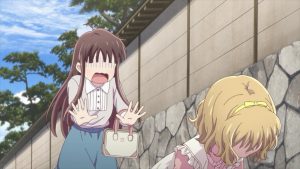 As Sohma parents go, Momiji’s father really isn’t a bad one at all. He loves his son, I think, and could even be argued to be taking the actions he does in part to protect him – what his wife did to Momiji is surely burned deeply in his mind. What he’s most concerned with protecting, though, is obviously himself and the “normal” life he’s built with Momo and with Momiji’s mother. Son or no, Momiji is a threat to that. So as a result Momiji has to be kept on the outside looking in – all the more once Momo’s awkward questions start to raise alarm bells.
As Sohma parents go, Momiji’s father really isn’t a bad one at all. He loves his son, I think, and could even be argued to be taking the actions he does in part to protect him – what his wife did to Momiji is surely burned deeply in his mind. What he’s most concerned with protecting, though, is obviously himself and the “normal” life he’s built with Momo and with Momiji’s mother. Son or no, Momiji is a threat to that. So as a result Momiji has to be kept on the outside looking in – all the more once Momo’s awkward questions start to raise alarm bells.
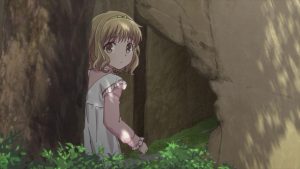 I’ve said it before, but the fact that Momiji chooses to confront his painful reality head-on rather than hide from it is testament to his strength of character. I would argue, in fact, that Momiji is the strongest Furuba character in both the critical and narrative sense. He chooses to play the role of the cheerful fairy prince because that’s the only way he can keep from giving in to despair, but it’s quite notable that Takaya almost never shows us Momiji in moments of solitude – and I suspect in those moments, with no one to perform for, he struggles to keep the pain from overwhelming him. Maybe that’s why he loves the violin so much – it gives him an outlet that he’d drown without.
I’ve said it before, but the fact that Momiji chooses to confront his painful reality head-on rather than hide from it is testament to his strength of character. I would argue, in fact, that Momiji is the strongest Furuba character in both the critical and narrative sense. He chooses to play the role of the cheerful fairy prince because that’s the only way he can keep from giving in to despair, but it’s quite notable that Takaya almost never shows us Momiji in moments of solitude – and I suspect in those moments, with no one to perform for, he struggles to keep the pain from overwhelming him. Maybe that’s why he loves the violin so much – it gives him an outlet that he’d drown without.
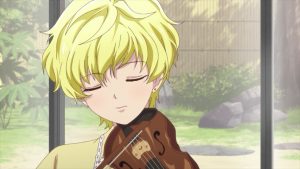 Thanks to Momiji’s map Tohru does eventually meet up with Kureno, and manages to give him Uo’s contact info. Kureno is a mysterious figure, but he makes one wonder if it may be even worse to be a Sohma Akito likes, not hates – he has to bear the terrible burden of being close to Akito all the time. As for Tohru, all this isolation she sees effects her – and as usual, it’s the always-observant Kyou who’s at her side when the dam breaks. He clearly knows the truth of his own feelings – but has Tohru come to understand the truth of hers?
Thanks to Momiji’s map Tohru does eventually meet up with Kureno, and manages to give him Uo’s contact info. Kureno is a mysterious figure, but he makes one wonder if it may be even worse to be a Sohma Akito likes, not hates – he has to bear the terrible burden of being close to Akito all the time. As for Tohru, all this isolation she sees effects her – and as usual, it’s the always-observant Kyou who’s at her side when the dam breaks. He clearly knows the truth of his own feelings – but has Tohru come to understand the truth of hers?


